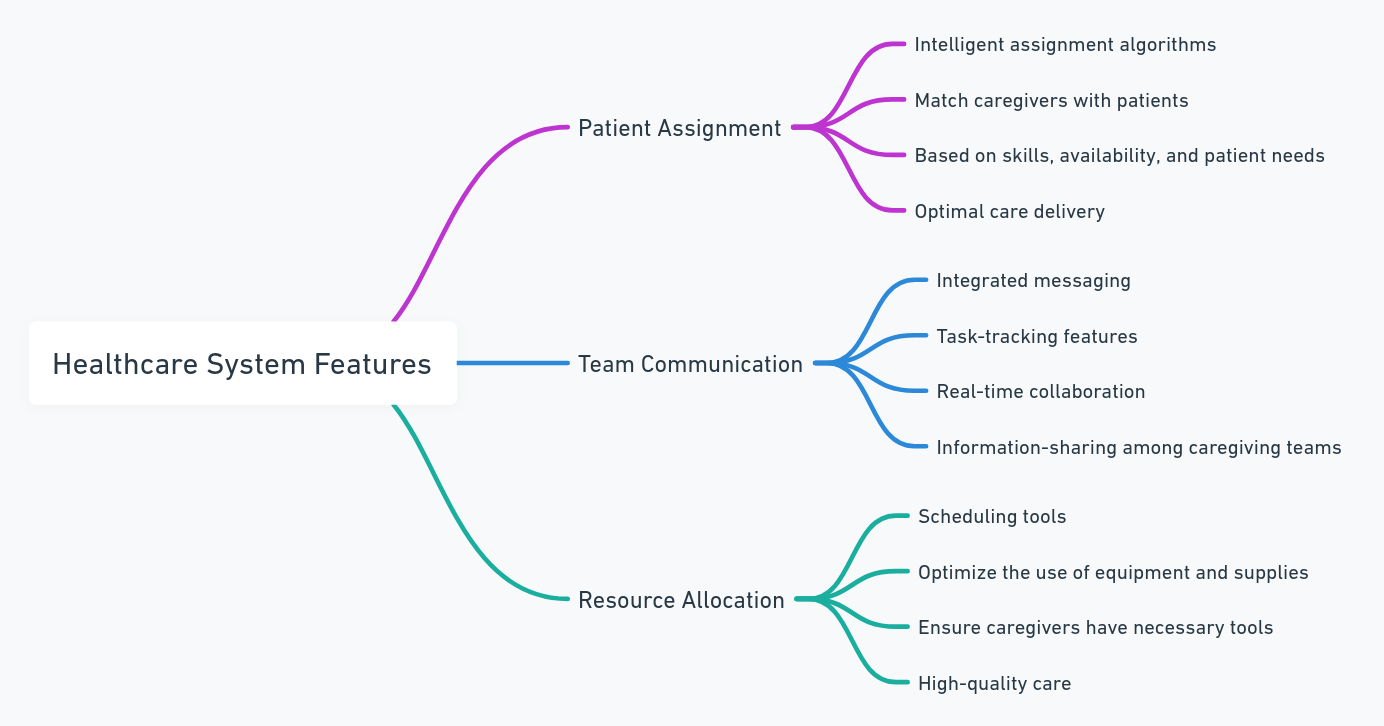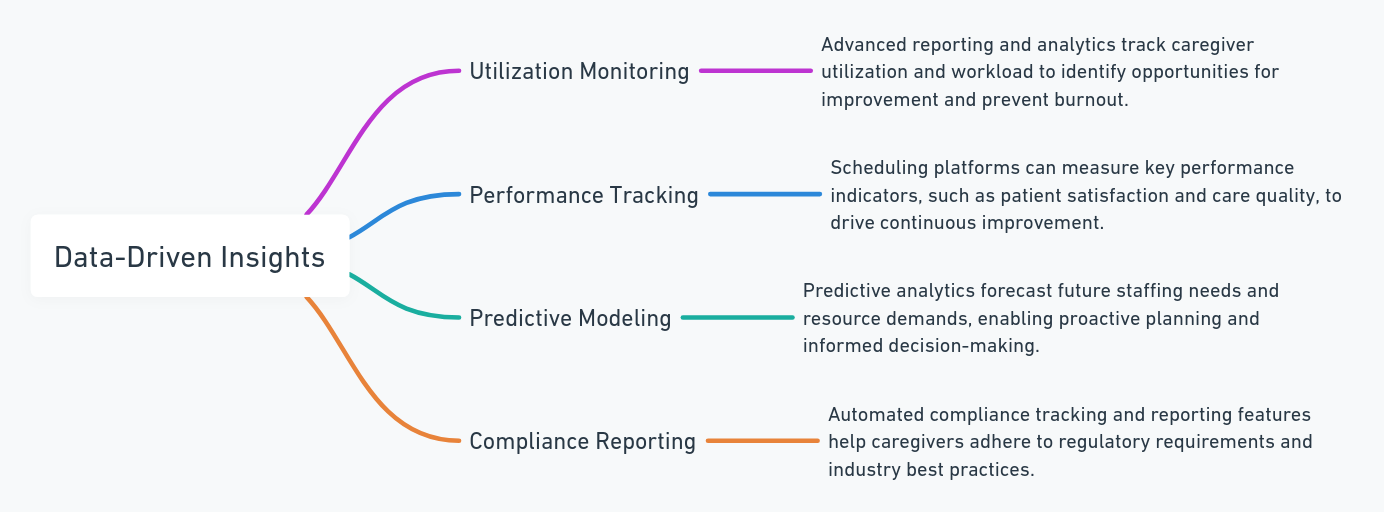
Enhancing Caregiver Efficiency with Advanced Scheduling Tools
In the rapidly evolving landscape of home healthcare, caregiver efficiency is paramount. The demand for quality in-home care is surging, driven by an aging population and a growing preference for personalized care within the familiar comforts of home. However, traditional scheduling methods often fall short in meeting the complex needs of both caregivers and patients. This is where advanced scheduling tools step in, offering a transformative solution to streamline operations, optimize resource allocation, and ultimately, elevate the standard of care.
The Challenges of Traditional Scheduling
Home healthcare agencies grapple with a unique set of scheduling complexities. Caregivers often have varying skill sets, availability, and preferences, while patients have diverse care needs and schedules. Manual scheduling processes, relying on spreadsheets and phone calls, can be time-consuming, error-prone, and inflexible. These inefficiencies can lead to scheduling conflicts, missed appointments, and caregiver burnout. According to a 2023 study by McKinsey, inefficient scheduling practices can increase home healthcare costs by up to 15%.
Increasing Demand and Workforce Challenges
The U.S. healthcare system is experiencing unprecedented demand due to an aging population and the increasing prevalence of chronic diseases. According to the U.S. Census Bureau, by 2030, all baby boomers will be over 65, significantly expanding the senior population. Concurrently, the Centers for Disease Control and Prevention (CDC) reports that six in ten adults in the U.S. have a chronic disease, further driving the need for robust healthcare services.
However, the workforce is struggling to keep pace. The Home Care Association of America highlights that the home healthcare industry faces a caregiver shortage, exacerbated by high turnover rates and burnout. These challenges underscore the necessity for efficient scheduling to ensure that patient care needs are met without overburdening caregivers.
How Advanced Scheduling Tools Transform the Landscape
Advanced scheduling tools, powered by artificial intelligence (AI) and machine learning, are revolutionizing how home healthcare agencies manage their workforce. These tools automate many of the tedious and time-consuming tasks associated with scheduling, allowing caregivers to focus on what they do best – providing compassionate care.
Key Features and Benefits
- Intelligent Matching – AI algorithms analyze vast amounts of data, including caregiver qualifications, availability, proximity to patients, and patient care needs. This enables the system to automatically match the right caregiver to the right patient at the right time. This results in improved patient satisfaction, as caregivers are well-suited to meet their specific needs.
- Real-Time Visibility – Caregivers and schedulers have access to real-time scheduling information, including upcoming appointments, shift changes, and patient updates. This enhances communication and coordination, reducing the risk of misunderstandings and scheduling conflicts. A Salesforce report found that real-time visibility tools can decrease scheduling errors by 25%.
- Optimized Routing – Advanced tools integrate with GPS and mapping technology to optimize travel routes for caregivers. This minimizes travel time, reduces fuel costs, and allows caregivers to see more patients in a day.
- Predictive Analytics – Machine learning algorithms can analyze historical data to predict staffing needs and identify potential scheduling issues before they occur. This proactive approach allows agencies to adjust staffing levels and prevent understaffing or overstaffing. AWS’s healthcare solutions leverage this predictive power to great effect.
- Data-Driven Insights – Advanced scheduling tools generate comprehensive reports and analytics, providing valuable insights into caregiver performance, patient outcomes, and overall operational efficiency. These insights can inform decision-making and drive continuous improvement. Snowflake’s data cloud platform is a popular choice for storing and analyzing this kind of data.
- Integration with Electronic Health Records (EHR) – Integration with EHR systems ensures that scheduling tools have access to up-to-date patient information, facilitating better care planning and coordination. Salesforce, AWS & Snowflake provides data integration solutions that can seamlessly connect scheduling tools with EHR systems, ensuring comprehensive data utilization.
Real-World Impact
The impact of advanced scheduling tools on home healthcare is undeniable. According to a 2024 case study published in the Home Health Care News, one agency saw a 20% reduction in caregiver turnover after implementing an advanced scheduling system. Caregivers reported higher job satisfaction due to improved work-life balance and reduced stress. Another agency reported a 10% increase in patient visits per day. This translates to increased revenue and improved patient outcomes.
Improved Patient Outcomes
Choosing the Right Scheduling Tool
Selecting the right scheduling tool for your home healthcare agency is crucial. Consider the following factors when evaluating different options;
- Features – Ensure the tool offers the features you need, such as automated scheduling, real-time visibility, optimized routing, and mobile accessibility.
- Ease of Use – The tool should be user-friendly for both schedulers and caregivers. Look for intuitive interfaces and comprehensive training resources.
- Scalability – Choose a tool that can grow with your agency. Consider the number of caregivers, patients, and locations you serve.
- Integration – The tool should integrate with your existing electronic health record (EHR) system and other software solutions you use.
- Support – Reliable customer support is essential. Look for vendors that offer training, troubleshooting, and ongoing support.
Conclusion
Advanced scheduling tools are a game-changer for the home healthcare industry. By automating routine tasks, optimizing resource allocation, and providing data-driven insights, these tools empower caregivers to deliver the highest quality care while reducing stress and improving job satisfaction. As the demand for home healthcare continues to grow, investing in advanced scheduling technology is no longer a luxury but a necessity for agencies that want to thrive in this competitive landscape.
If you’re a home healthcare provider looking to improve efficiency, reduce costs, and enhance patient satisfaction, investing in an advanced scheduling tool is a wise decision. It’s not just about schedules; it’s about transforming the way you deliver care.



